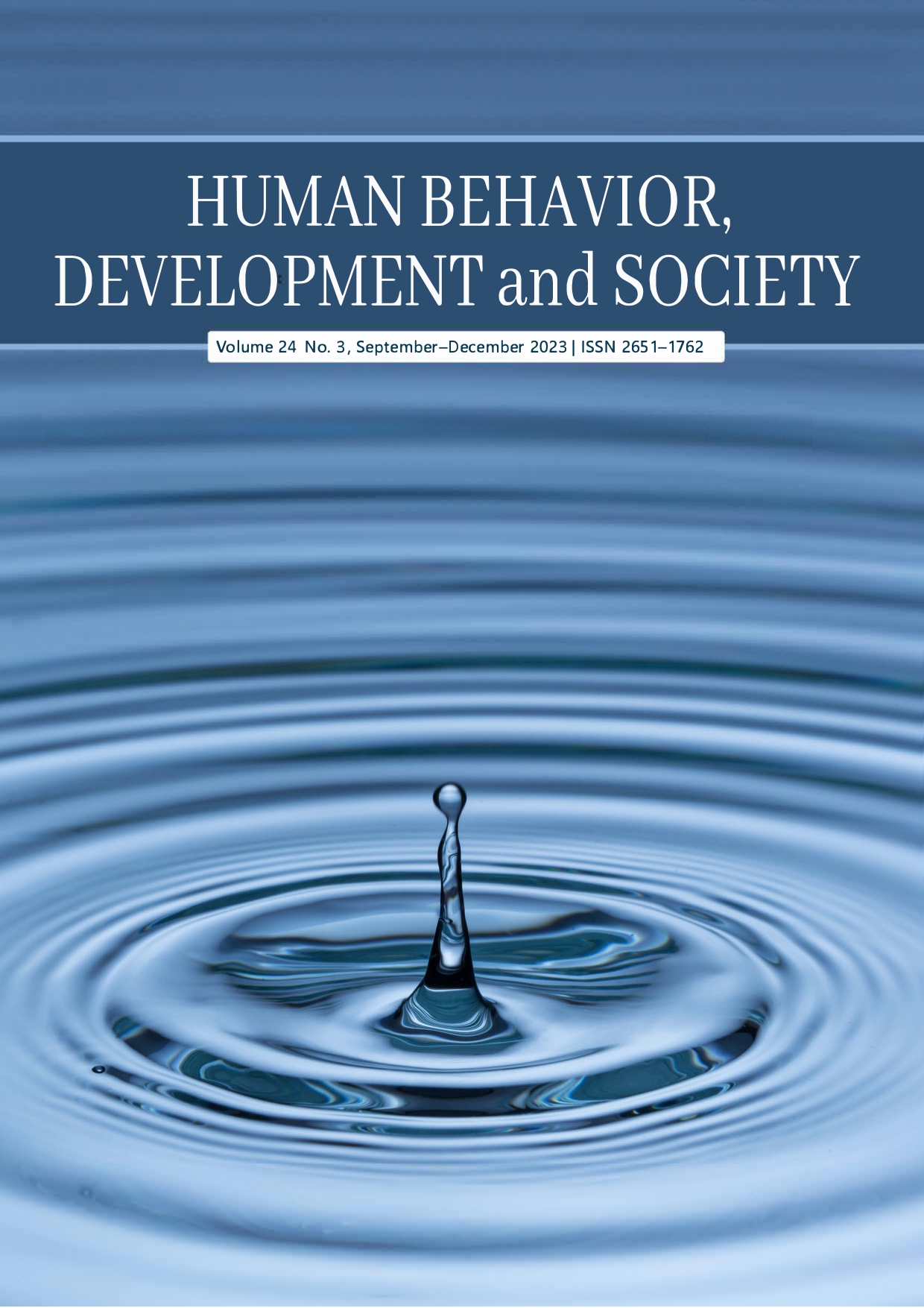Impact of Knowledge Towards Attitudes and Perception of the LGBTQ Community Among Young Adults in Malaysia
Main Article Content
Abstract
The focus of this study was to examine existing knowledge of Malaysian youths towards LGBTQ related concepts and issues, and how this knowledge affected their perception towards the LGBTQ communities. A customised version of the California State University, Northridge, Survey of Attitudes toward LGBT issues was used to gather data on 264 participants’ current attitudes and perception towards the LGBTQ community, and five interviewees were selected to understand the extent of their knowledge on concepts and issues about LGBTQ. Thematic analysis was used to assess qualitative data, with a subsequent cross analysis to examine the impact of their knowledge towards their attitudes and perception of the LGBTQ community. The findings of this study showed that there was a weak but positive change in attitudes and perception about LGBTQs, and that religion and cultural values remained the major factors contributing to participants’ overall attitudes, perception, and viewpoints towards the LGBTQ community. There is huge potential to promote more accepting and inclusive attitudes towards the LGBTQ community by increasing knowledge and understanding of LGBTQ related issues and concepts.
Article Details

This work is licensed under a Creative Commons Attribution-NonCommercial-NoDerivatives 4.0 International License.
Copyright: Asia-Pacific International University reserve exclusive rights to publish, reproduce and distribute the manuscript and all contents therein.
References
Asian-Pacific Resource & Research Centre for Women. (2020). LGBTIQ+ Rights in Malaysia. https://arrow.org.my/wp-content/uploads/2021/01/LGBTIQ-Rights-in-Malaysia-.pdf
California State University, Northridge (n.d.). Survey on CSUN attitudes toward LGBT issues. https://www.csun.edu/~gm61310/survey/AttitudesSurvey.pdf
Chandra, J., Tondok, M. S., & Balgies, S. (2022). Indonesian students’ prejudice against homosexuals: Religious fundamentalism and intergroup threat as predictors. Humaniora, 13(3), 255–264. https://doi.org/10.21512/ humaniora.v13i3.8346
Collier, K. L., Bos, H. M., & Sandfort, T. G. (2012). Intergroup contact, attitudes toward homosexuality, and the role of acceptance of gender non-conformity in young adolescents. Journal of Adolescence, 35(4), 899–907. https://doi.org/10.1016/j.adolescence.2011.12.010
Craig, S. L., Eaton, A. D., McInroy, L. B., Leung, V. W. Y., & Krishnan, S. (2021). Can social media participation enhance LGBTQ+ youth well-being? Development of the social media benefits scale. Social Media and Society, 7(1), 205630512198893. https://doi.org/10.1177/2056305121988931
Gorrotxategi, M. P., Ozamiz-Etxebarria, N., Jiménez-Etxebarria, E., & Cornelius-White, J. H. D. (2020). Improvement in gender and transgender knowledge in university students through the creative factory methodology. Frontiers in Psychology, 11(367), 1–9. https://doi.org/10.3389/fpsyg.2020.00367
Haider-Markel, D. P., & Joslyn, M. R. (2008). Beliefs about the origins of homosexuality and support for gay rights: An empirical test of attribution theory. Public Opinion Quarterly, 72(2), 291–310. https://doi.org/10.1093/ poq/nfn015
HRC Foundation. (2022). Sexual orientation and gender identity definitions. Human Rights Campaign. https://www.hrc.org/resources/sexual-orientation-and-gender-identity-terminology-and-definitions
Jerome, C., Ting, S., Podin, Y., & Ahmad, S. S. bt W. (2021a). Public receptivity towards LGBT in recent times Malaysia: LGBT perspectives. International Journal of Academic Research in Business and Social Sciences, 11(14), 371–383. https://doi.org/10.6007/ijarbss/v11-i14/8943
Jerome, C., Ting, S., & Yeo, J.J. (2021b). Examining discrepant views of LGBT and non-LGBT individuals on societal receptivity towards the LGBT phenomenon in present-day Malaysia. International Journal of Social Science Research (IJSSR), 3(1), 55–66. https://myjms.mohe.gov.my/index.php/ijssr/article/view/12817
Jerome, C., Ting, S., & Yeo, J.J. (2021c). Examining the human dignity factor and the public’s attitudes towards LGBT in Malaysia. Asian Journal of Behavioural Sciences, 3(2), 14–22. https://myjms.mohe.gov.my/ index.php/ajbs/article/view/13453
Ling, H., & Ting, S. (2022). Relationship between religious background, intergroup contact and acceptance of LGBT in Malaysia. International Journal of Social Science Research, 4(1), 339–354. https://myjms.mohe.gov.my/index.php/ijssr/article/view/17719
Luhur, W., Brown, T. N., & Goh, J. N. (2020). Public opinion of transgender rights in Malaysia. UCLA Williams Institute. https://williamsinstitute.law.ucla.edu/publications/opinion-trans-rights-malaysia/
Manalastas, E. J., Ojanen, T. T., Torre, B. A., Ratanashevorn, R., Hong, B. C. C., Kumaresan, V., & Veeramuthu, V. (2017). Homonegativity in Southeast Asia: Attitudes toward lesbians and gay men in Indonesia, Malaysia, the Philippines, Singapore, Thailand, and Vietnam. Asia-Pacific Social Science Review, 17(1), 25–33. http://www.tinyurl.com/ ybmug67r
Mitchell, A., & Fries, M. (2016). The effect of knowledge on attitudes toward homosexual behavior. Race, Gender & Class, 23(1-2), 183–202. https://www.jstor.org/stable/26529198
Mokhtar, M. F., Sukeri, W. A. E., & Latiff, Z. A. (2019). Social media roles in spreading LGBT movements in Malaysia. Asian Journal of Media and Communication (AJMC), 3(2), 77–82. https://journal.uii.ac.id/AJMC/article/view/ 14310
Monika, A. & Gogoi, S. (2022). Knowledge and acceptance of youth of Manipur towards LGBTQ. The Pharma Innovation International Journal 2022; 11(12S), 1024–1025. https://www.thepharmajournal.com/special-issue?year=2022&vol=11&issue=12S&ArticleId=17490
Newman, P. A., Reid, L., Tepjan, S., & Akkakanjanasupar, P. (2021). LGBT+ inclusion and human rights in Thailand: A scoping review of the literature. BMC Public Health, 21, 1816. https://doi.org/10.1186/s12889-021-11798-2
Octavia, V. K., & Erlangga, D. T. (2022). Student attitudes toward LGBT in Indonesia. Jurnal Pustaka Ilmu 2(7), 1–9. http://pustakailmu.id/index.php/pustakailmu/article/view/190/172
Reyna, C., Wetherell, G., Yantis, C., & Brandt, M. J. (2014). Attributions for sexual orientation vs. stereotypes: How beliefs about value violations account for attribution effects on anti-gay discrimination. Journal of Applied Social Psychology, 44(4), 289–302. https://doi.org/10.1111/jasp.12226
Tan, K. K. H., Lee, K. W., & Cheong, Z. W. (2021). Current research involving LGBTQ people in Malaysia: A scoping review informed by a health equity lens. Journal of Population and Social Studies, 29, 622–643. https://doi.org/10.25133/JPSSv292021.038
Toh, G. W., Koh, W. L., Ho, J., Chia, J., Maulod, A., Tirtajana, I., Yang, P. & Lee, M. (2023). Experiences of conflict, non-acceptance and discrimination are associated with poor mental well-being amongst LGBTQ-identified individuals in Singapore. Equality, Diversity and Inclusion: An International Journal, 42(5), 625–655. https://doi.org/10.1108/EDI-10-2021-0270
Tuah, K. M., & Mazlan, U. S. (2020). Twitter as safe space for self-disclosure among Malaysian LGBTQ youths. Jurnal Komunikasi: Malaysian Journal of Communication, 36(1), 436–448. https://doi.org/10.17576/JKMJC-2020-3601-25
Wahlen, R., Bize, R., Wang, J., Merglen, A., & Ambresin, A. E. (2020). Medical students’ knowledge of and attitudes towards LGBT people and their health care needs: Impact of a lecture on LGBT health. PLoS ONE, 15(7), 1–13. https://doi.org/10.1371/journal.pone.0234743
Whitehead, A. L. (2014). Politics, religion, attribution theory, and attitudes toward same-sex unions. Social Science Quarterly, 95(3), 701–718. https://doi.org/10.1111/ssqu.12085


